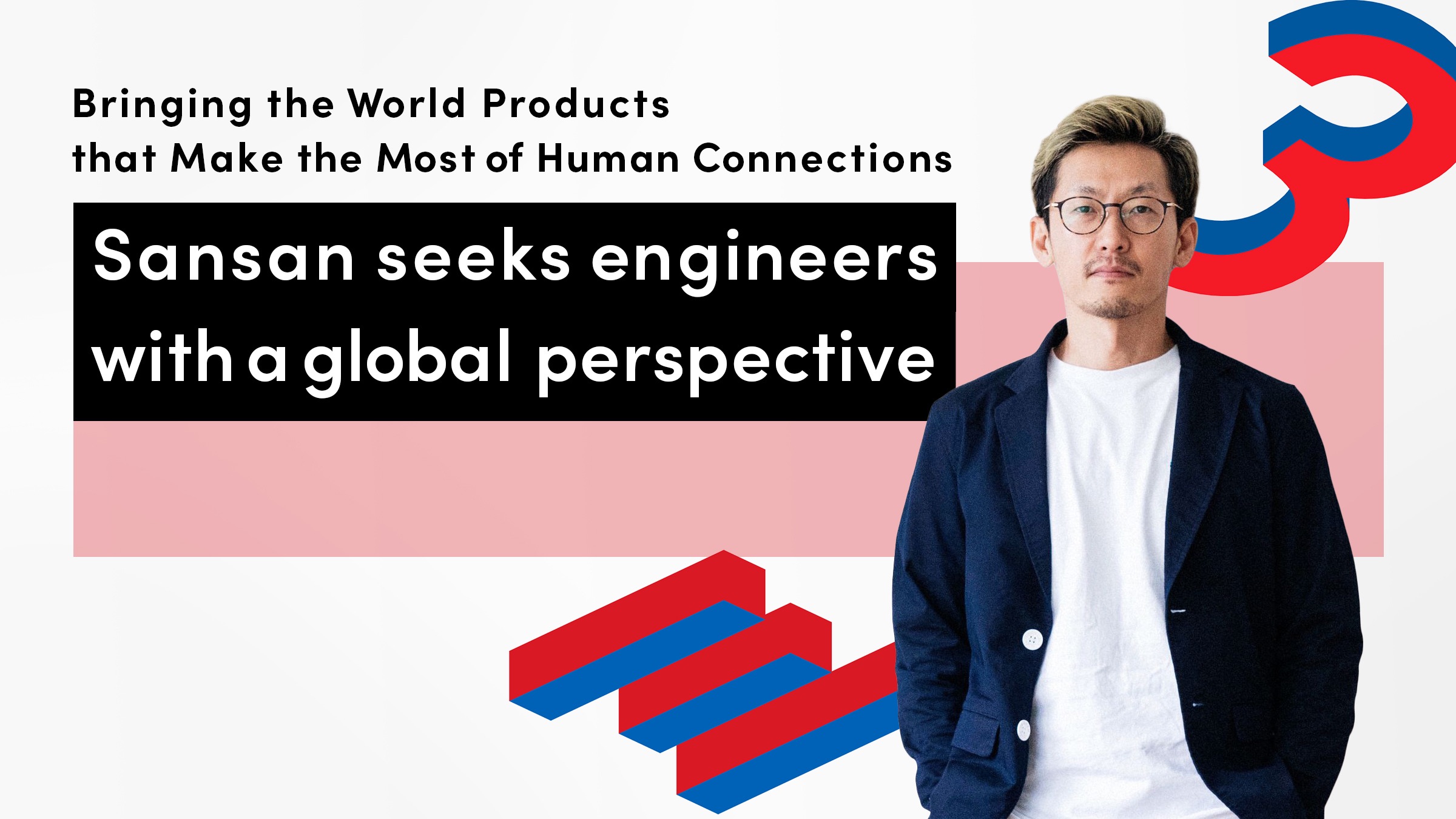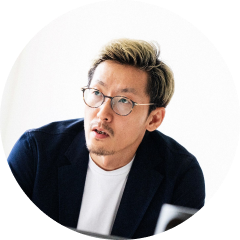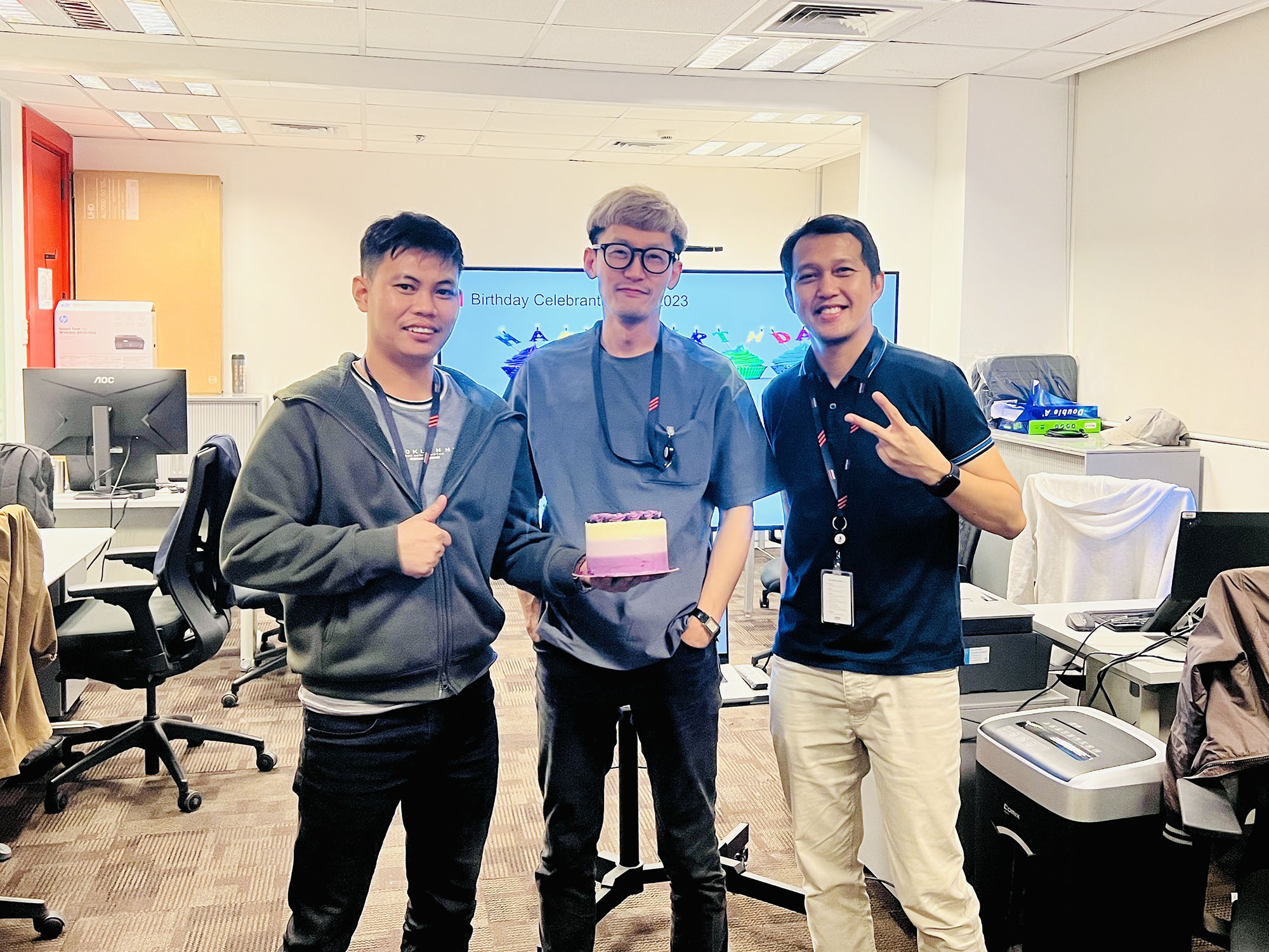
本記事は、外国籍のメンバーに限らず、日本のメンバーにも通用する内容でもあります。これから活躍の幅を広げて行きたいと思っている日本人の若手エンジニアの皆さまもぜひ読んでみてください。日本語版の記事はこちら
PROFILE

Shigemoto Fujikura
Head of Overseas Establishment Team
After working in R&D for an IT venture firm in Silicon Valley, Shigemoto returned to Japan and earned a master's degree in engineering from the Kanazawa Institute of Technology Graduate School. In 2009, he joined Sansan, where he has held several key positions, including CTO. He’s now focusing on setting up Sansan's first overseas engineering team.
Networks’ benefits for business are universal – Sansan can help business development around the world
What sorts of things are you working on now?
As the Head of the Overseas Establishment Team, I'm also the Director and CTO of the Sansan Global Development Center (SGDC). The SGDC is an organization that develops products by independently thinking and making decisions through close consultation with the Japan-based members, rather than by working under the direction of the Japan head office. We currently have 25+ engineers and we’re looking to hire more. But there are still many things that can't be done only in Cebu, so I travel back and forth between Japan and Cebu to create a framework and build relationships with the Japan-based members.

Sansan has had its sights set on global expansion since the company was founded. What’s your perspective on this?
From the very beginning of the company, it was taken for granted that if you're starting a software business from scratch, it must be globally sighted. But we've also had many discussions about whether our business model can truly succeed on a global scale. In the process, we kept coming back to the idea that we didn’t want to just manage business cards and contacts, but rather, we wanted to incorporate human networks and connections into our business so that they could be maintained and updated as company assets.
Many of our company members, including CEO Chika Terada and myself, have experience working overseas, and we all say we've have never seen an area where human networking in no way contributes to business.In Japan, it's not so strange to do business with someone you're meeting for the first time but, for example, in the US settings where I worked, it was really important whether you previously knew each other or whether you had mutual acquaintances. In a multicultural environment where people from very different backgrounds meet, trusting each other is more difficult than you might imagine. So, business and human networks are closely related in every country. That's why we strongly believe our products can contribute to the development and utilization of human networks in business all over the world.
As Sansan is gradually achieving global expansion, what kind of future do you see for the company?
For now, we’re aiming to achieve global sales that match the levels we’ve achieved in Japan. Beyond that, we’re looking toward a world in which new products are developed based on ideas and approaches unique to the global market, followed by the creation of Japanese localized versions. Only then will we be able to say that we're a company that does business in the global market, and not solely in the domestic Japanese market.
Global expansion demands memberswith diverse cultural backgrounds
How will the engineering organization change as you expand globally?
If you want to expand your business globally, you also need to globalize your workforce. The key is to build a team with members who have diverse cultural backgrounds, perspectives, and ideas.
In the Japanese market, it's normal for everyone to share the same business practices and culture to get things done. But from a global perspective, it’s much more particular, and overseas markets are very different. Yet it’s hard to see the differences using the sensibilities acquired in Japanese culture. That's why the development of products that can be used overseas requires input not only by Japanese, but also by members with different cultural backgrounds and sensibilities.
Tell us a bit more. In developing products for overseas markets, in what specific situations do you need members with global sensibilities?
Take the development of the Sansan sales DX (digital transformation) solution as an example. Business cards added into Sansan contain addresses. Software engineers think about how to structure the address. But the accuracy of a single part of an address is quite different from country to country. Japanese addresses, especially in central Tokyo, refer strictly to a single block. Foreign addresses can be more ambiguous. In such areas, the address is only as good as the mail delivered, and there's no need to pinpoint specific geographic information.
If software is created based on a central Tokyo address and in the Japanese sense, it needs to be redesigned when it's rolled out overseas, and that takes a lot of time. The process would go more smoothly if we first developed the pattern based on an overseas approach to addresses, and then created a Japan-only pattern. So this means that we need members with a global perspective.
The ability to imagine, think, and decide, as well as knowledge and skills, is essential
Who in particular would you like to work with among engineers with a global perspective?
You have to be able to understand the cultural differences among the members and then judge what is the right direction. It's difficult to change a unique Japanese company into a globalized company, but I want to work with people who can enjoy that challenge while also making correct decisions.
And what about the technical aspects?
Engineering knowledge and skills are a prerequisite, but imagination, thoughtfulness, and the ability to articulate are also essential.
The ability to talk about extremely abstract concepts, for example, is also an important skill. Software engineers take on and discuss highly abstract topics, deciding on the direction for development, and giving shape to the work. Like I mentioned about addresses – each country has its own way of thinking, but we raise the level of abstraction and treat them as the collective concept of an “address.” These types of discussions aren’t always easy for engineers, but it's good to develop the ability to think at a higher level of abstraction to face the challenge of creating products that can be accepted worldwide.
Why is the ability to think at a more abstract level so important?
In software development, we don't often deal with things as they exist physically. For example, when developing a contact management function, we consider how "user" and “contact" are viewed and redefined in our worldview. So we come up with definitions for every single word that appears on the screen. We have to question, think, verbalize, and put into software what we somehow know in our heads. It's difficult, but it's a very important process in development, so I hope people will actively engage in it without being afraid of not being good at it.
Our global expansion is still at a starting point,so I want to see it transcend its boundaries
You talked about the type of person Sansan is looking for. But what do you think are the interesting aspects of Sansan from an employee perspective?
Sansan has grown to a company with some 1,500 employees. And while it has power and dynamism, it's still just at the starting line in terms of global expansion. It's interesting that Sansan now has these contradictory aspects working at the same time. In a company that's growing, those who are motivated by both their own growth and the company's growth will definitely enjoy their time here.
Global expansion is a continual challenge, and we have to increase the speed of our development. In this environment, I want younger members in particular to challenge themselves to go beyond their own boundaries and the roles expected of them. An interesting aspect of Sansan is that it has an environment in which this is possible.
Sansan certainly has a culture of making suggestions and taking an active role that goes beyond one's own role.
Absolutely. So it's important to have the mindset that anyone can and must change the organization. For example, I’m in management, but there are many things I cannot do. In this situation, members’ feedback often gives me insights, which helps me to stay updated on the team’s status. I hope each member will engage with the team and expand their awareness from the team to the group, department, headquarters, and the company.
Naturally, we operate under the premise that we are doing what’s best, but it’s important to keep a mindset that updates may be needed, and to proactively speak up about it. If each of us tries to improve the environment, our performance will improve, and we’ll be able to create better products and move faster. I want to create this type of positive atmosphere with all our members, both global and Japanese.
Thank you very much. Finally, do you have a message for young people growing up to be engineers, about how the world of engineering will change in the future and what kind of skills they’ll need?
The knowledge and skills engineers need to acquire are changing rapidly with the times. Unlike 25 years ago, when I became an engineer, the days of being evaluated on technology alone are long gone. The emphasis is now on what can be accomplished with the technology and what value can be created. Working with only limited technical expertise is OK, but more than that, there's a need for people who are highly skilled in technology and who can use technology, make decisions, and make choices that will produce business results and lead to positive outcomes.
We also need to continually answer the question, “What's the right thing to do from a business standpoint?” For example, if you can handle multiple programming languages, choosing a language because you like it or because it’s the current trend isn’t the right way to go about it. To look back in a few years to see if the choice was the right one, you have to at least make a decision first. Make a decision, verbalize it, and then look back on it later to evaluate whether it was the right decision. The right answer will become evident later, and the accuracy of the decision itself will increase through repeating this process. If more engineers can naturally make their own decisions and choices in this way, software will be created properly, leading to greater business impacts.


